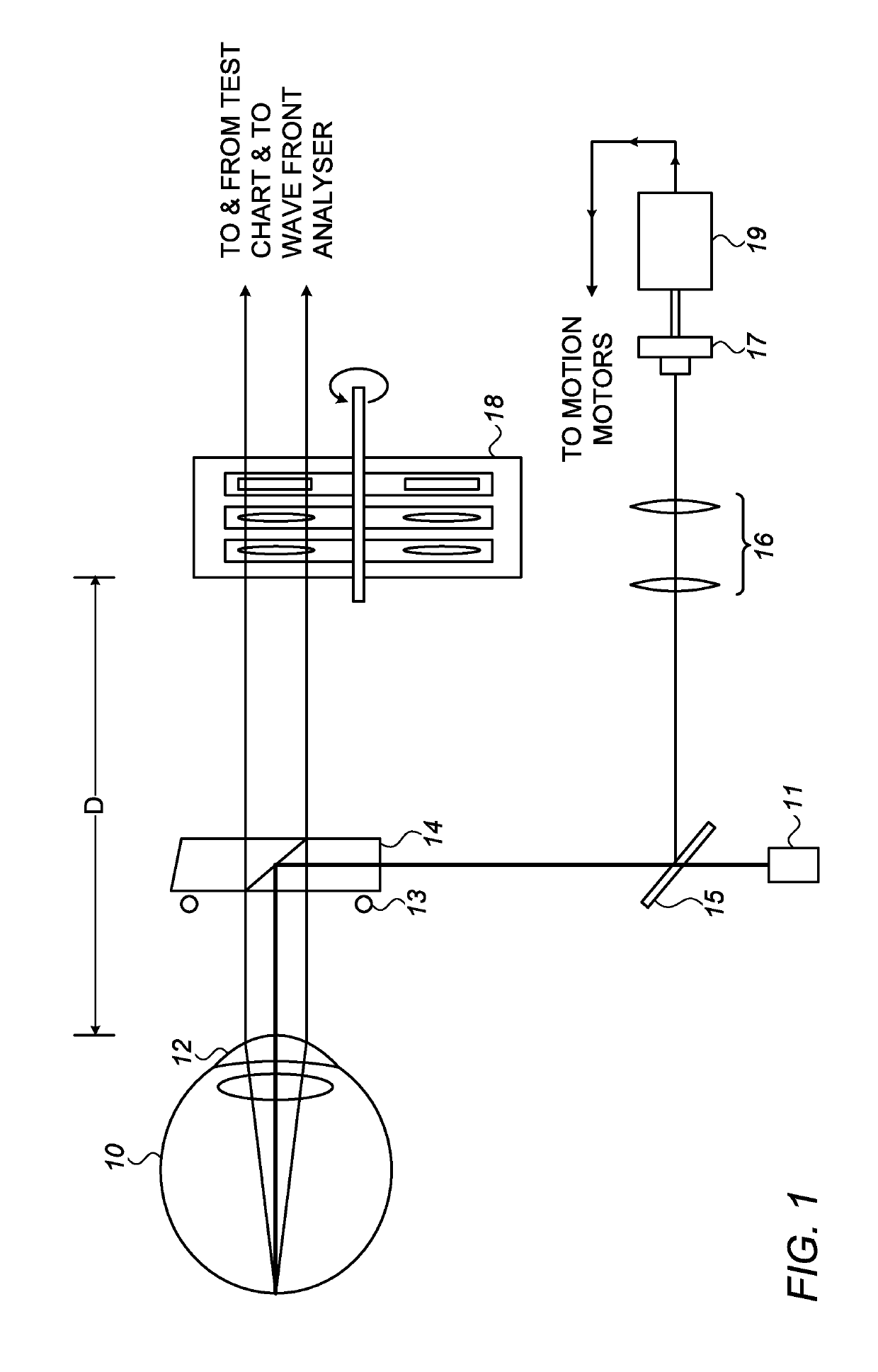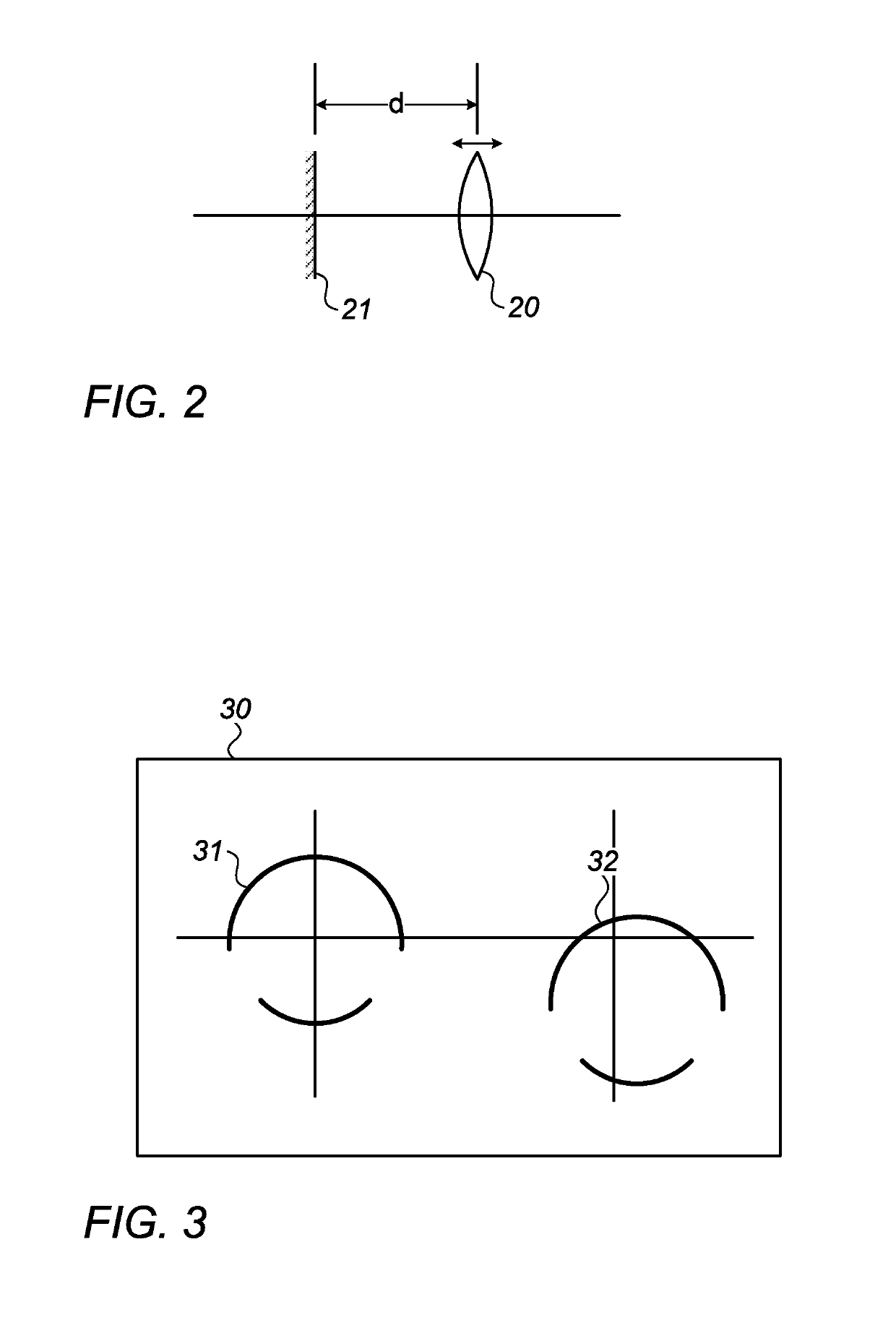Objective phoropter
a phoropter and objective technology, applied in the field of objective phoropter measurements, can solve the problems of inaccurate prescription output for preparing correction spectacle lenses, inaccurate prescription output, and inaccuracy, so as to improve the focussing and centering of the subject's eyes, improve the accuracy and convenience of use of instruments, and improve the effect of focusing and centering
- Summary
- Abstract
- Description
- Claims
- Application Information
AI Technical Summary
Benefits of technology
Problems solved by technology
Method used
Image
Examples
Embodiment Construction
[0034]Accurate lateral centering and longitudinal focussing of the eye are important operations necessary for ensuring good accuracy for many ophthalmic measurements. The correct position of focus is important, not only for the phoropter measurement but also for the wavefront measurement of the present instrument. A pair of spectacles should be worn at a predetermined distant from the eye, in order that the prescription accurately compensates for the eye's aberrations. The correct distance is important because the image is effectively focused onto the subject's retina by a combination of the lens of the subject's eye and the spectacle lens in front of that eye. The longitudinal distance between those two lenses is one of the parameters that determines the power of such a combination of spaced lenses. It is for this reason that a standard distance D of the spectacle lenses from the front surface of the eye is assumed in ophthalmic prescriptions, and this convention is used for determ...
PUM
 Login to View More
Login to View More Abstract
Description
Claims
Application Information
 Login to View More
Login to View More - R&D
- Intellectual Property
- Life Sciences
- Materials
- Tech Scout
- Unparalleled Data Quality
- Higher Quality Content
- 60% Fewer Hallucinations
Browse by: Latest US Patents, China's latest patents, Technical Efficacy Thesaurus, Application Domain, Technology Topic, Popular Technical Reports.
© 2025 PatSnap. All rights reserved.Legal|Privacy policy|Modern Slavery Act Transparency Statement|Sitemap|About US| Contact US: help@patsnap.com


